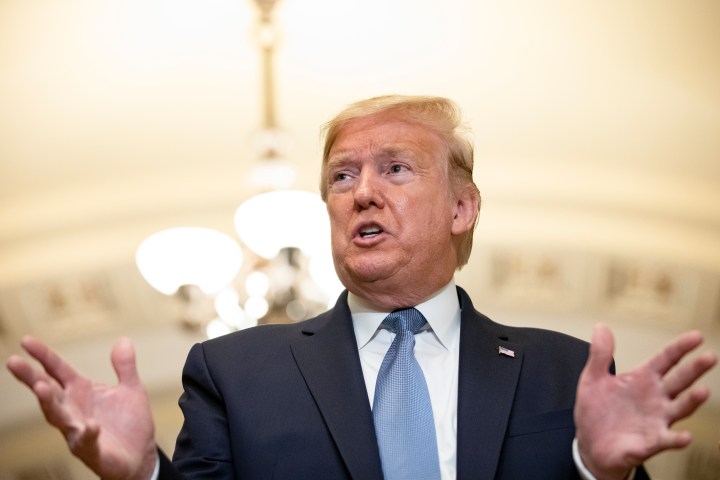
What Trump’s payroll tax cut proposes to do for workers, businesses
What Trump’s payroll tax cut proposes to do for workers, businesses

President Trump says his administration is working on a stimulus plan designed to curb the potential economic downturn caused by the COVID-19 outbreak. Among the proposals is a payroll tax cut.
In the U.S., employers are required to pay a portion of each employee’s salary in taxes. According to the Tax Policy Center, the U.S. collected $1.1 trillion dollars in payroll taxes in 2017, financing social security, the hospital insurance portion of Medicare, and the federal unemployment insurance program.
The idea of a payroll tax cut is to boost the economy by getting “a lot of money in a lot of people’s pockets quickly,” said Tara Sinclair, professor of economics at The George Washington University. But that isn’t the case for many consumers.
“They don’t even necessarily notice that additional money because it’s a relatively small proportion of their paycheck,” Sinclair said.
In 2011, President Barack Obama cut payroll taxes by 2%, which averaged around $1,000 extra per family that year. For the Bush administration’s stimulus plan, checks were sent to taxpayers.
The biggest economic worry today isn’t spending, but public health, said Nicole Kaeding, vice president at the National Taxpayers Union Foundation.
“People aren’t going to restaurants and are cutting back on seeing movies and not going to the bowling alley as often, not because of a financial constraint. It’s a public health one,” Kaeding said.
Due to social distancing and cancelled public events, many businesses will face a decrease in demand. But payroll tax cuts only help those who get a paycheck. Retirees, the unemployed and many gig workers would be left out of this stimulus measure.
There’s a lot happening in the world. Through it all, Marketplace is here for you.
You rely on Marketplace to break down the world’s events and tell you how it affects you in a fact-based, approachable way. We rely on your financial support to keep making that possible.
Your donation today powers the independent journalism that you rely on. For just $5/month, you can help sustain Marketplace so we can keep reporting on the things that matter to you.












